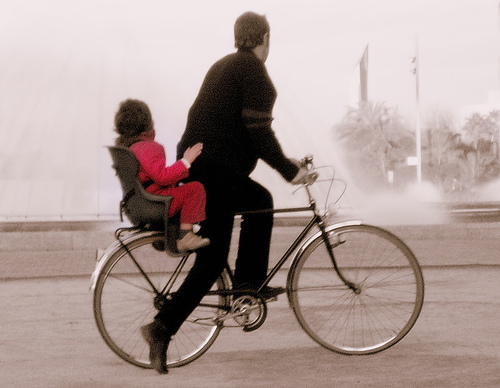Growing up in a blue collar Long Island suburb, Anthony D’Aries studied the language that men speak, a dialect preoccupied with cars, work, booze, classic rock and Martin Scorcese. In his new memoir, The Language of Men, D’Aries tallies the cultural currency of what it means to be a man, a father, a son, a brother, and a husband. With a tender heart and ethnographer’s sensibility, he examines the generations of his own family through war, marriage, sickness and the everyday struggles of life in an order to discover his legacy as well as his future.
Listening to hours of recorded interviews, D’Aries hears the familiar sounds of his father. There is the inhale of Winston smoke, the clink of a glass of ginger ale. He tells us, “My father speaks his own language. A hillbilly twang of the Looney Tunes dialect—Foghorn Leghorn, Yosemite Sam—mixed with the African-American jive of the dirties comedians—Redd Foxx or Richard Pryor…He throws in song lyrics, movie quotes, even slogans from TV commercials. It all swirls together and all you do is try to keep up.”
Is it possible that in emulating the man he loves, D’Aries isolates himself, unable to communicate or even understand his life—a life shaped in so many ways by his father?
And his father does not hold back in these interviews. His stories of his time spent in combat in Vietnam are peppered with profanity, misogyny, violence, and an odd lyrical beauty. In an attempt to parse the meanings of all these words, D’Aries travels to Vietnam with his new wife, Vanessa. She is teaching a class on health and anatomy for sex workers; he is suspended between America and Vietnam, between past and present, driving along Highway 1 to Bien Ha with his father’s voice playing in his ears. A tour guide points out the city’s center, a cement building and a dry fountain. “Platoon,” he tells them. “All Platoon.”
At its heart, this is the central mystery for a young man reared on pop culture in all its forms. Is it Vietnam or is it a movie about Vietnam? Standing in front of a mirror with his brother’s guitar D’Aries pretends, “I was Gary Oldman pretending to be Sid Vicious.” His father is a man of nearly cartoonish masculinity—a butcher by trade, he restores classic cars and practices amateur taxidermy in his spare time. He is larger than life and seemingly indestructible. His freckles defy skin cancer as he bakes in the sun. He survives two strokes, poking a Winston into his twisted mouth before heading to work instead of the hospital. Is this what it means to be a man? Is it possible that in emulating the man he loves, D’Aries isolates himself, unable to communicate or even understand his life—a life shaped in so many ways by his father?
It is notable that in The Language of Men D’Aries provides a strikingly vivid depiction of the women in his life. His mother is a force of silent strength, cracking eggs and balancing the family checkbook in the kitchen while her husband and sons quote Goodfellas in the next room. D’Aries recognizes his mother’s own language. “Her sighs were songs,” he tells us, “the solos she sang softly in the kitchen, wrenching out the pots and pans jammed in the drawer beneath the stove.” When he finally turns his tape recorder to her, she is reluctant at first, a woman who apologizes for “talking her son’s ear off.” But when she speaks it is an aria of pain and forgiveness delivered as she kneels, hands in the dirt of her beloved garden.
It is perhaps this realization of his mother’s inner life that allows D’Aries to scrutinize his connection to Vanessa. In order to save their relationship, he must hear her voice as well. In Vietnam, in a moment of exasperation, she challenges D’Aries’s research. “Have you been listening to yourself on those tapes?” she asks him. As it turns out the recordings are not just recordings. They are a phantom. They are a means of invoking the past and of justifying a life threatening to derail by sheer force of inertia.
D’Aries’ navigates the terrain of manhood, particularly those places situated deep in the shadows and rarely illuminated with such honesty. He is an unforgiving and unflinching narrator, particularly when discussing his own faults and habits. But his masterstroke is accomplished in the delicately charted translation of his father’s life. Both father and son must learn they are not playing roles, they must realize their lives speak a unique language, one that is shaped and formed, in spite of the ugliness, by love.
